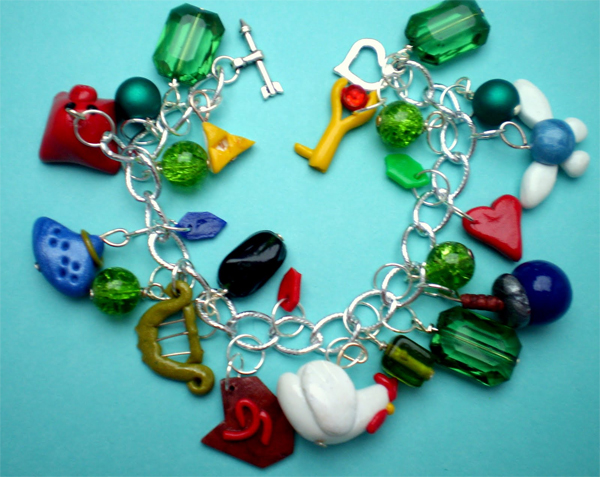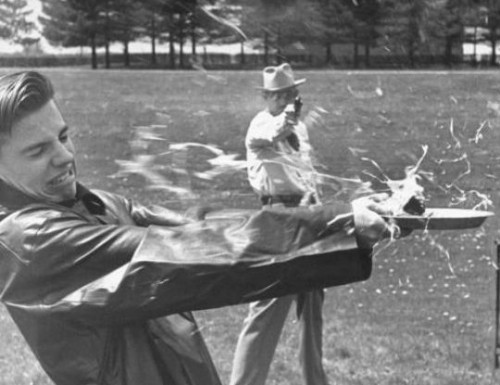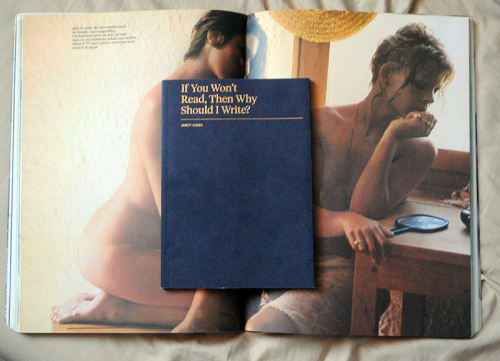Games Taught Me to Care About You
When presented with bad design, I often become irrationally, almost violently angry. The first time I was exposed to the class registration system at NMSU, I was seated at a university computer, in a public place, with my wife. None of these things stopped me from thumping the desk with my fist after twenty minutes of trying and failing to make the goddamn thing do what I wanted. I have said that bad design actually makes me more angry than the Holocaust; this is true. Obviously the Holocaust was worse than bad design, but I have no direct experience of its horrors. Bad design is with us every day, corroding us inside and out. It feels more immediate, to me. It feels oppressive.
Bad design makes me so angry because it is a message from the world, a whisper. It says: “No one cares about you. No one knows that you exist. No one knows what you are like. No one has taken the time to imagine you. No one wants to think about what you need or want. You are profoundly unimportant.”
Every once in a while, a writer steps out of their word cave and takes to social media to behave badly. Emily Giffin, her husband, and her assistant, recently all behaved in inexplicable ways across Facebook and Amazon. It’s really as hilarious as it is sad (h/t Jessa Crispin).
I’ve been trying to make triple spoonerisms, merely to pass the time (like when riding the lift). My only noteworthy success thus far has been “rape soccer pissers.”
You?
Why We Need Superheroes, or, A Parental Theory, or What Was Just A Review of Chronicle Before People Were Murdered While Watching The Dark Knight Rises

This July my wife, daughter, and I visited my family in California and on our return flight to Atlanta we met with a reprieve when our one-year-old fell into a deep sleep in our arms. She didn’t even wake when my wife had to use the bathroom and shifted the baby into my lap. I took this quiet opportunity to scan the movie offerings on those individual screens that some Delta flights afford passengers. The movie choices are not usually very good and the descriptions of the plots are vague, especially if you’re like me, and you hardly watch television and so remain ignorant when it comes to pop culture. I ended up selecting one of these vague choices, with an equally vague title. I didn’t know anything about Chronicle. The plot synopsis was something like “three friends chronicle their lives through a camcorder when suddenly everything changes.” I didn’t recognize the actors’ names, and I think that’s why I chose to watch it; I figured I’d try something completely unknown.
I got lucky with this choice. The movie is not very long (at 83 minutes it’s closer to the length of movies that I grew up on and not the typical two-hour epics that are common today), and I didn’t know when my daughter might wake, which would end my movie-watching experience. But she snoozed right through the whole thing, which afforded me the time to think about the ideas that coalesced in writing the first draft of what you’re reading. READ MORE >
Michael Godard: Art that is Freedom from Success

The UK low-res pop band Cleaners From Venus have a song called “Corridor of Dreams,” which I think is basically the most chillwave, or even dadwave, thing possible. I don’t mean this as a joke or even as disrespectful. Ariel Pink was and is a huge fan of this band. I found out about this song when I was dating (or trying to sleep with?) a girl in a band in Oakland CA, before I left for NYC, in 2010. We were driving to get milk shakes from McDonalds in West Oakland. It was a hot spring day. She had amazing tits and didn’t give a fuck what I thought of here. I let her borrow my Fender and she almost didn’t give it back. The woman in question dropped it off with Frankie Rose when she came to New York on tour. I didn’t go to her show. She said my guitar was a piece of shit.
She put the song on, in her tour van, and I didn’t want to leave California, ever.
I’m listening to it now. It has the most amazing lyrics. They are all fantastic. Here are a couple lines.
riting not riting
Some days it feels like pushing words around in a flat wheelbarrow. You write for hours with no real result, or with result far from satisfactory, or with result very far from satisfactory, as if you’ve lost the thing (always a fear), the thing that worked before but is now clearly not working (see David Duval, see Harper Lee [?], etc.). Were these hours wasted? In a busy life, could you have spent these hours on something clearly and concretely productive (mowing lawn, purchasing drugs, thinning mints, etc.)? Some bray, “Well, it all counts,” it is all grist for the mill, tourists for the ants, but possibly they are patronizing a person who just spent many fruitless hours staring at the whiteout conditions, the frowned forehead of the page. For me, a lifelong runner, I think of training. Some days I’m in a glow groove with running—the planned fartlek, tempo, hill surges, go exactly as I’d imagined.
Other days–and I learned this after decades of competitive running–the biorhythms are just funky-junked, right from the first warm-up step. There is immediately no flow. The legs are squid. So I usually shut that workout down. I switch the workout over to something less arduous, or I might just go play disc golf, or I might pop open a beer. That day wasn’t the day. Period. So maybe, in writing, we should do the same? Just accept the reality of the neurotransmitters and let it go. The other option—and, admittedly I’ve seen this work in running, though not so often—is to grind yourself into that space. Some read a book or lit mag, or listen to music (or write a blog post?), whatever, hoping to prime the engine, to transition into writing. Is that the better way? Or another? It’s something I’m pondering.
Hanging Out vs. Being Hanged: An Interview with Jarett Kobek
Jarett Kobek is the author of ATTA, from Semiotext(e), and the forthcoming If You Won’t Read, Then Why Should I Write? on Penny-Ante Editions.
If You Won’t Read…, often referred to by Kobek as “The Sex Tapes Book,” is a collection of the coincidental dialog from celebrity sex tapes (and some other hyper-media-based ‘tapes’) transcribed and presented as a text. Included alongside these transcriptions is the criminal records of the celebrity whose dialog is on display. Riding a fine line between conceptual writing, humor, gossip, and ‘alt-lit,’ the book ends up being hilariously funny while resonating with an intense cultural relevance.
I sat down with Jarett one afternoon at a café in San Francisco’s Mission District to talk about his new book. The hour-long conversation, covering everything from Normal Mailer to Jennifer Lopez to Miley Cyrus’s shamanic trip, is available to listen to below:
Interview with Jarett Kobek, Part 1
Interview with Jarett Kobek, Part 2
Pre-order If You Won’t Read, Then Why Should I Write? at Penny-Ante Editions.





